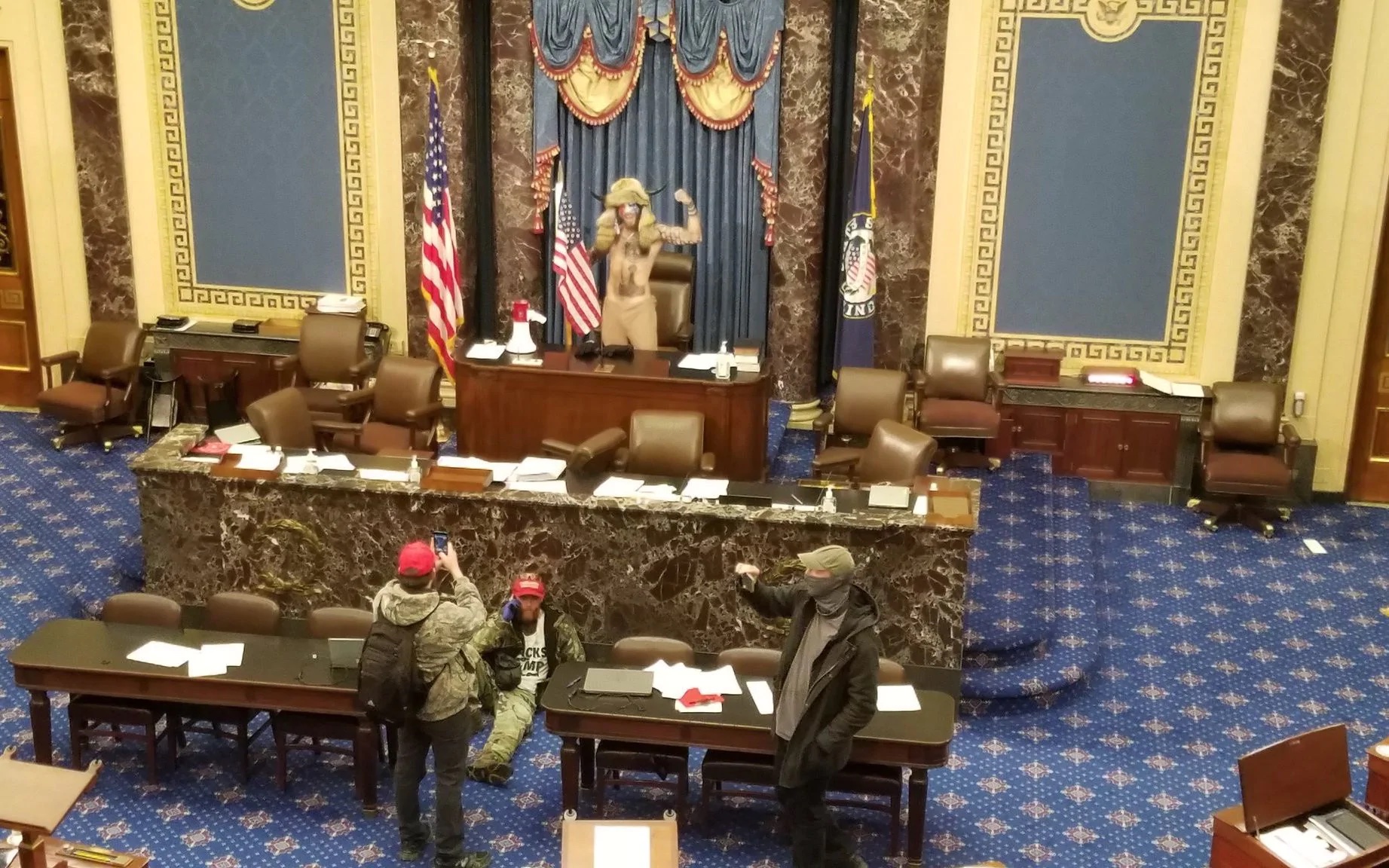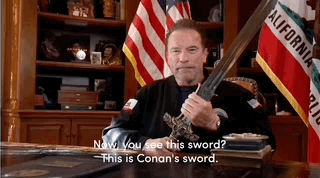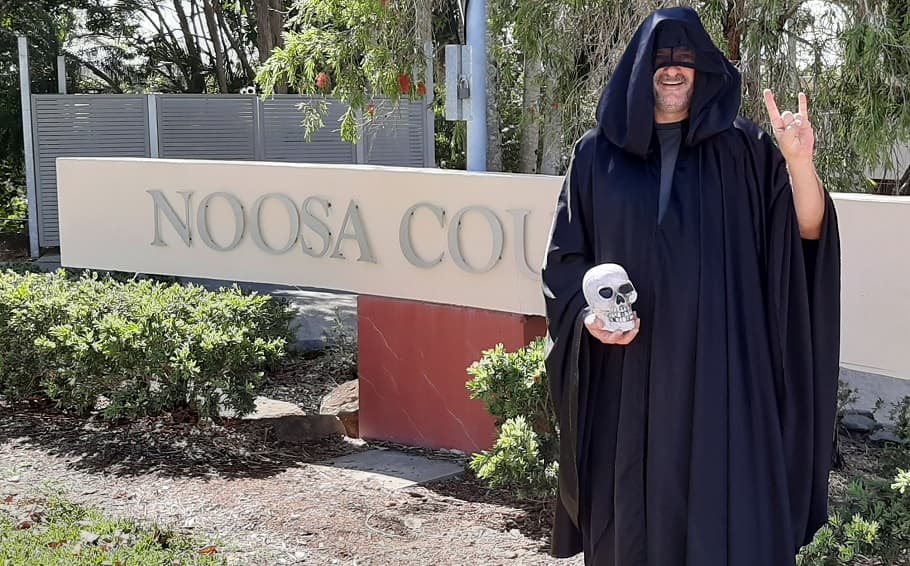
I want to start this little mini-series by starting to tease out the idea of ‘machine church’ — and the ‘machine’ as I’m going to describe it, with Paul Kingsnorth as my conversation partner. One of the fundamental ideas behind machine church is the inexhaustible inexorable desire to grow beyond limits, rather than receive and embrace them as creaturely gift; the other main aspect, probably (though there are many components) is the reduction of all things to technology and technique (ala Jacques Ellul’s Technological Society). I’m mostly going to unpack the idea of growth beyond limits being the essence of the ‘machine’ in this post, and will pick up the technology/technique line later.
I don’t want to be Don Quixote tilting at a straw windmill here either, so, through these posts, I’m going to ground these reflections in my own experiences of machine church; which lead me to observe the same fundamentals operating in other churches, systems, and church growth systems.
Paul Kingsnorth’s Against The Machine opens with this line from Wendell Berry.
“It is easy for me to imagine that the next great division of the world will be between people who wish to live as creatures and people who wish to live as machines.”
If he — and Berry — are right in their prophetic/poetic assessment of the modern age, it shouldn’t surprise us to find this tendency at work in the construction of Christian communities as a missiological technique or discipleship strategy — it’s simply an outworking of an anthropology (and perhaps an eschatology).
Kingsnorth also describes — with a dose of Tolkien — the perspective one committed to creatureliness of a certain type might bring to the present moment.
“This world, you can see, is on the way out, if it is not already long gone. The one that is manifesting to replace it is a left-brain paradise, all straight lines and concrete car parks where the corn exchange used to be. The future is STEM and chatbots and cashless parking meters and economic growth and asteroid mining forever and ever. There is no arguing with it. You can feel the great craters that it makes in the world, you can feel what is being tarmacked and neatened and rationalised into oblivion, and the depth of what is leaving, but you cannot explain or justify it in the terms which are now the terms we live by. You just know that something is wrong.”
I’ve written, once upon a time (in 2018 even), about how STEM being the basis of human formation is — to my mind — more dangerous in public schools than sexuality education because it trains a certain sort of participation in the machinery of the economy, to fuel perpetual consumption; so it’s fair to say I resonated with this description (while also, admittedly, often loving being a cog in the consumer machine and the convenience of Amazon’s next day delivery service — a product of its vast magical logistical empire, complex global supply chains, and machine-human hybrid where workers are digitally monitored by wearable tech, and codes and machines augment their productivity).
I know of a church, by the by, that realised it could track an interesting stat — either newcomers or new devices — by observing how many unique/new MAC addresses pinged its router during a Sunday service. Big data.
Kingsnorth describes the machine ‘uprooting’ people from traditions (including religious traditions) and place into a kind of global uniformity, particularly expressed in urban life — those one might, following Marc Auge — describe as ‘non-places’ at a metropolitan level (here’s a sermon from my ‘Being Human’ series exploring how church spaces that are basically black boxes designed for artificial light, smoke machines, and video projection, have become non-places, this is a kind of ‘uprooting’ — the antithesis would be, for example, the rootedness of the Ethiopian Church Forest — that’s an old article where I interact with some older work from Paul Kingsnorth).
At some point in my time at machine church the auditorium at our mothership was painted black. Voices who complained about no longer being able to see one another, or the pages of their paper Bibles were told they would be able to better see the stage and the screen. The goal of this design change was to make Sundays more excellent and the media — on screen and on stage — easier to attend to, and more compelling by contrast. The campus I pastored already met in a black box — first a rented black box theatre, and then a Pentecostal warehouse conversion with an excellent plug and play AV setup with more screens than we could figure out how to use.
Here’s Kingsnorth on the uprooting process:
“We could simply call this process modernity, which is not a time period so much as a story we tell ourselves. But I prefer to call it the Machine, because a machine—as the poets showed me—is what it feels like. This process, which has been going on for centuries, of uprooting us from nature, culture and God, leads us into a mass society, controlled by and for technology, in which we have been on course to become, since at the least the Industrial Revolution, mere cogs in a giant mechanism that we have no control over.”
Kingsnorth talks about the impact of the machine on the architecture of the city; describing a movement from cities designed for ‘human scale living’ where everyone could be addressed by a single voice, to global cities. The idea of a ‘human scale’ church is one I’ll pick up in a future post.
“This is the modern Machine city: global in scale and ambition, bland, homogenised and empty at its heart. Plato’s ideal city, and the real cities of the pre-modern period, were a combination, sometimes uneasy, sometimes harmonious, of ambition and aim. They were religious centres, cultural hubs, marketplaces, dwelling places, loci of power. The twenty-first century city exists mainly for one purpose: profit. Everything that exists there, from schools to art galleries to concert halls to government buildings, is pointed towards this end.”
The goal of the machine is growth — unfettered growth — not to serve its users (who, Matrix style, become its fuel), but its owners — maximising profits, or growth, or bums on seats consuming and paying and spreading your content; probably, in machine church — ‘digital content’ served up on screen corporately, and on your individual pieces of glass through the week. Kingsnorth again:
“This ‘growth’ is the overriding purpose of the ‘global economy’ which the Machine has built: everything else is of secondary concern. The growth has no specific aim and no end in sight, and can always be justified by pointing to problems—poverty, environmental degradation—which were in many cases caused by the growth, but which can now only be solved by more of it. It is facilitated by the production and consumption of ‘goods and services’, the desire (or ‘need’) for which has been manufactured by vast marketing and advertising concerns whose best minds are trained in the essence of psychological manipulation.”
In 2023 I wrote a piece with CPX, also published in Eureka Street, looking at the mechanics of poker machines and how necessary limits are in the design of machines. There’s a thought experiment about the need for limits in the tech-philosophy world, the Paperclip Maximiser Machine (originally from this essay) — this artificially intelligent machine exists with the sole goal to ‘maximise the number of paperclips’; and sets about converting all of material reality into paperclips — ultimately including human bodies. Poker machines, like many other tools of capitalism, are designed to ‘maximise profits’ — in industry parlance, to have users ‘play to extinction.’ This is the machine impulse, and the impulse of the forces Kingsnorth describes.
He introduces Allen Ginsberg’s poem Howl, which compares the consuming power of the machine to Moloch, the devouring pagan god of the Ancient Near East (I’ve used this same poem in an AI talk/lecture thing that I gave at an ISCAST conference a few years ago; I probably should turn that into a post at some point).
The payoff for Kingsnorth, later in his book, is that he sees dark spiritual forces — powers — animating the machine; the kind the Bible might name as Molek (Moloch) and Mammon. And, like the machine Moloch of Howl, or the 1927 silent film Metropolis (that’s the mechanical god from that movie at the top of this post), this profit maximising machine bucks against limits and seeks to devour all it can to serve its ends.
“The Machine manifests today as an intersection of money power, state power and increasingly coercive and manipulative technologies, which constitute an ongoing war against roots and against limits. Its momentum is always forward, and it will not stop until it has conquered and transformed the world. To do that, it must raze or transmute many older and less measurable things: rooted human communities, wild nature, human nature, human freedom, beauty, faith and the many deeper values which we all adhere to in some way or another but find difficult to describe or even to defend. Its modus operandi is the abolition of all borders, boundaries, categories, essences and truths: the uprooting of all previous ways of living in the name of pure individualism and perfect subjectivity. Its endgame is the replacement of nature with technology, in order to facilitate total human control over a totally human world.”
In 2016, when Telstra was running it’s ‘communication technology is magical’ campaign, I read (and wrote about) a book by a technologist, David Rose, Enchanted Objects, he described a kind of ‘machine’ world.
“I HAVE A recurring nightmare. It is years into the future. All the wonderful everyday objects we once treasured have disappeared, gobbled up by an unstoppable interface: a slim slab of black glass. Books, calculators, clocks, compasses, maps, musical instruments, pencils, and paintbrushes, all are gone. The artifacts, tools, toys, and appliances we love and rely on today have converged into this slice of shiny glass, its face filled with tiny, inscrutable icons that now define and control our lives. In my nightmare the landscape beyond the slab is barren. Desks are decluttered and paperless. Pens are nowhere to be found. We no longer carry wallets or keys or wear watches. Heirloom objects have been digitized and then atomized. Framed photos, sports trophies, lovely cameras with leather straps, creased maps, spinning globes and compasses, even binoculars and books—the signifiers of our past and triggers of our memory—have been consumed by the cold glass interface and blinking search field. Future life looks like a Dwell magazine photo shoot. Rectilinear spaces, devoid of people. No furniture. No objects. Just hard, intersecting planes—Corbusier’s Utopia. The lack of objects has had an icy effect on us. Human relationships, too, have become more transactional, sharply punctuated, thin and curt. Less nostalgic. Fewer objects exist to trigger storytelling—no old photo albums or clumsy watercolors made while traveling someplace in the Caribbean. Marc Andreessen, the inventor of the Netscape browser, said, “Software is eating the world.” Smartphones are the pixelated plates where software dines.”
His solution was that rather than ubiquitous black glass and code trying to fill every inch of space, we should harness technology’s magical power by imbuing everyday objects with ‘magical’ properties but in a way that contained (or constrained) the magic within physical limits. He suggested pill boxes that glow when medication needs to be taken (like Bilbo’s sword), or ‘portal wardrobes’ sitting in the homes of extended families across the globe that glowed when a motion sensor across the world revealed the proximity of a family member so you could open the door and chat. He viewed this as an alternative to a world of ‘black glass’ — the black mirror — wall to wall ‘smart’ screens.
There was a conversation I had, while working at machine church, about the prospect of people waking up to start the day staring into a smart mirror that both monitored their dental hygiene and served up a daily devotion — content we could produce — including video snippets from sermons; to maximise our ‘reach’ and the integration of our content into the daily life of our followers. The desire to coat the world in black glass — technology — to have us always attentive to screens that can sell us more stuff and harvest our attention — this is both the warped eschatology of Wall-E or Infinite Jest, and the maximising desire of the surveillance capitalism algorithmic machine. But it, too, is the impulse of the machine to fill all space and to maximise the harvest.
There’s a certain type of thinking that turns the content of the Gospel into a thing — data — to be consumed and believed (and perhaps eventually embodied), something reducible to a series of 0s and 1s — that aims to reduce friction in the transmission of that information and to embrace any possible mediums — without question — so long as they are available and effective.
This reduces ministry, mission, discipleship, teaching, and pastoring to technical issues; a matter of technique, to be amplified by available technology.
Sermons become TED Talks — with imagery and definitely no notes — to be filmed and chopped up into social media highlights, or podcasted around the globe with fancy top-and-tails inviting people to give more or spread the reach — but no rooted, relational, context or connection between speaker and audience. Why shouldn’t they be written by a Chat bot, or delivered by one in virtual reality? Really.
Discipleship becomes ‘serving the machinery’ of the Sunday production, or the extension of the content throughout a network, and being ‘fed’ by consuming more of the product.
Questions about whether the media undermine the message are not asked, or not welcomed. Growth and efficacy — or ‘impact’ — are the measure of faithfulness. This thinking comes from the machine, and serves the machine — embedding it into spheres of human life — communities and spiritual practices — where it should least naturally gain a foothold.
Anyway, back to Kingsnorth — his take is that the ‘machine’ is now so embedded in our physical environment and our psyche that we treat it as natural — there’s a fantastic essay by Neil Postman titled ‘Five Things We Need to Know About Technological Change’ where — in 1998 — he talked about the way technology aims to be ‘mythic’ — to make us think we ‘can’t live without it’ — that it’s part of the natural order; that progress is inevitable and via the mechanisms dictated to us by the workings of our machines. But the machine isn’t natural — it is disruptive.
We do, by our nature, imagine, invent and create tools and technologies. Tolkien’s neat model for thinking about when we do this humanly, as bearers of the divine image, was to create a distinction between sub-creation — making in the image of the maker (like elves) — and a kind of powerful de-creation at the heart of the machinery impulses of Mordor. In a letter to Milton Waldman, who he hoped might publish his books, Tolkien wrote about the sub-creator’s tendency to fall; to try to protect our own creations from the will of the creator, and how this gives rise to ‘the machine’:
“He will rebel against the laws of the Creator — especially against mortality. Both of these (alone or together) will lead to the desire for Power, for making the will more quickly effective — and so to the Machine (or Magic). By the last I intend all use of external plans or devices (apparatus) instead of the development of inherent inner powers or talents – or even the use of these talents with the corrupted motive of dominating: bulldozing the real world, or coercing other wills. The Machine is our more obvious modern form though more closely related to Magic than is usually recognised.”
C.S Lewis, in his first public lecture at Cambridge, recognised the way the machine had coded itself into our imagination and changed our stories — disenchanting them so that the imaginative gap, or conception of the world, between Egypt and Jane Austen was smaller than the gap between Jane Austen and us. Our imaginations have been mechanised — not just in our stories, but in how we perceive and interact with the world, and ‘progress.’ So, Kingsnorth says:
“The values of that Machine are now so ubiquitous that we treat them as if they were as natural as rain or wind. Progress; ‘openness’; an objection to limits and borders; therapeutic individualism; universalism; the rejection of roots, place and history; pure materialism; the triumph of ‘reason’ over ‘superstition’; scientism; commercialism and the primacy of market values: all of these go to make up the unseen and unquestioned value system within which we live, and to which we feel there is simply no alternative.”
Then, citing Lewis Mumford, he says “The Machine, in Mumford’s words, feels ‘absolutely irresistible … and ultimately beneficent’. Opposition to it is presented as naive idealism at best, and a dangerous denial of its benefits to the needy at worst.”
The machine exists to grow. To defy limits. To overcome. At all costs. By any means. To ‘reach the city and reach the world’ — or just ‘reach’ more people… for the good of, well, its mission — even if we claim that it is in Jesus’ name and for his glory; our methods serve the machine, whose mission is antithetical to Christian discipleship; to formation as humans in the image of Jesus; because it exists to form humans into parts of the mechanism — or fuel for the mission; harvesting our attention, our bodies, our energy and our resources to grow and feed itself and produce profits for its masters.
So, Kingsnorth again:
“The ethos of the Machine is expansion, the busting of limits and the consumption of whatever can be sold to us to meet the ‘needs’ of the individual self which the Machine constructed for us in the first place. But all of nature’s functions operate within limits. They rely for their continued operation on a healthy balance of the complex and delicate systems that the living planet brings about.”
I’m not saying that, under God’s sovereignty, faithful mission carried out this way cannot produce fruit — it can and will; God works despite our purposes and against the powers and principalities in many and varied ways. There are still things from my time in machine church that thrill me; much good was achieved, sub-creation occurred — not just magic — the Gospel was preached, lives were transformed as people repented. But results — this sort of fruit — are not the measure of faithfulness; that’s machine thinking (which, again, serves the machine’s goal — self-maximisation and ubiquity).
My thesis is that there are church growth strategies — and models and systems of church life that are functionally mechanical; that share language, methods, and values with the machine — often with the stated goal of a ‘bigger harvest’ — more converts; more people joining the church machine as cogs in the mechanism.
And, even, that this mode of operation will seem natural to anybody building a church community in the machine culture of west, to reach the machine culture of the west, with a genuine zeal to make disciples.
But, just as Kingsnorth sees the machine as cancerous to human flourishing in the western world, I’m going to try to make the case that the nature of the machine — antithetical as it is to being transformed into Christlikeness — is cancerous to discipleship, to community, and to the mission of the Gospel, and we should, indeed, rage against the machine and extract ourselves from its machinating, masticating, cogs — before it chews up more people.







